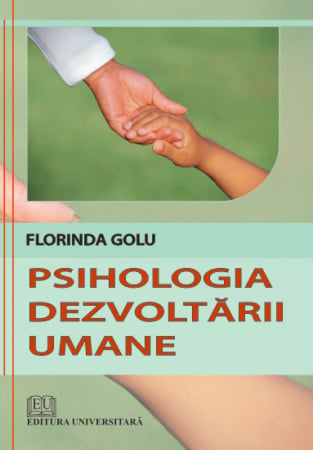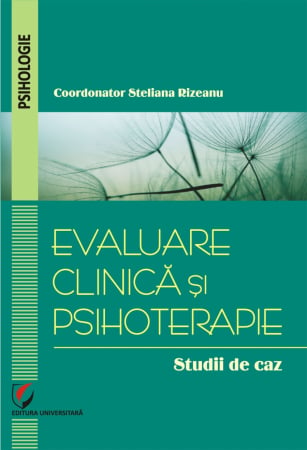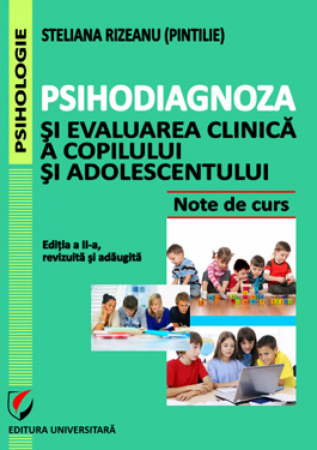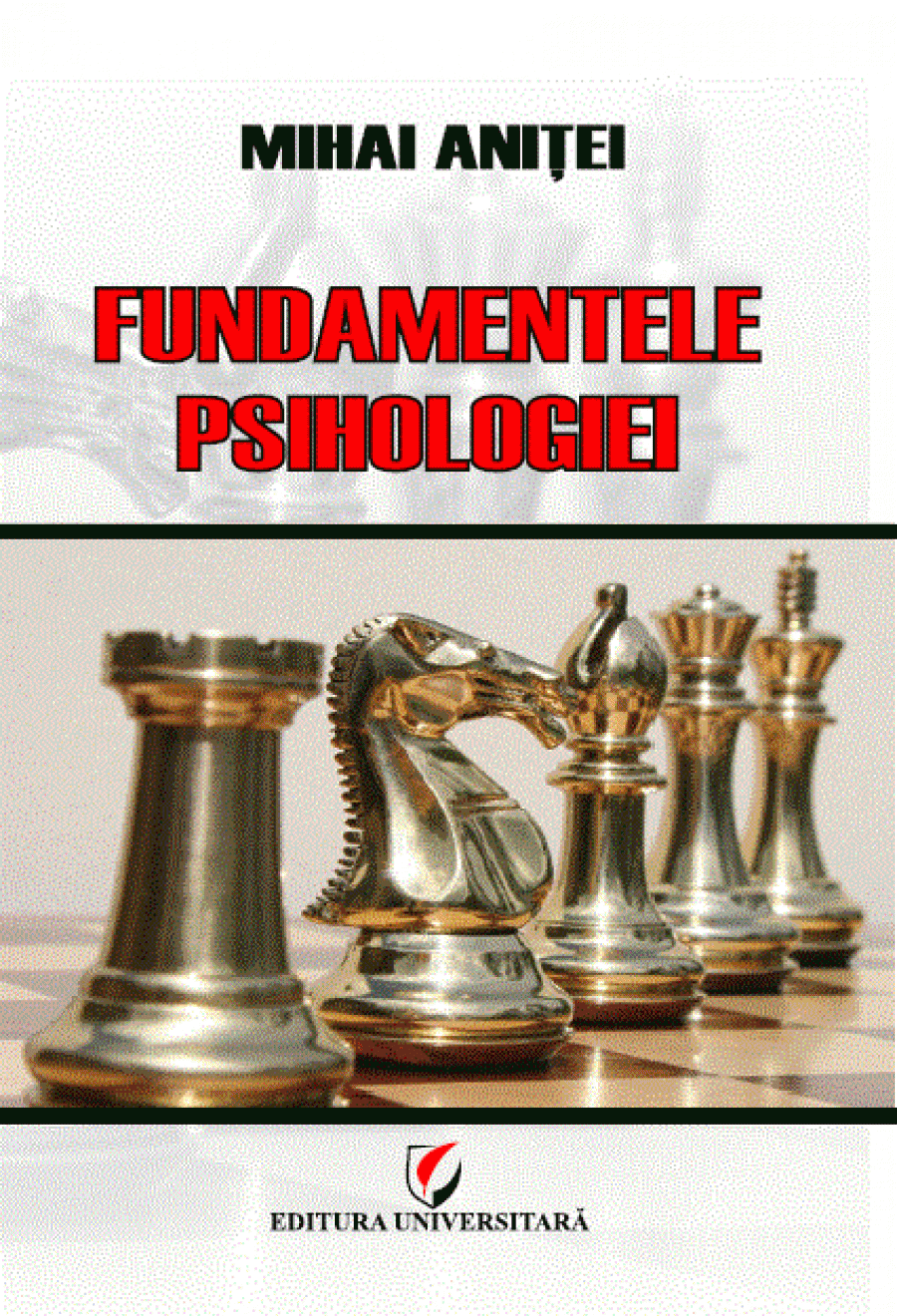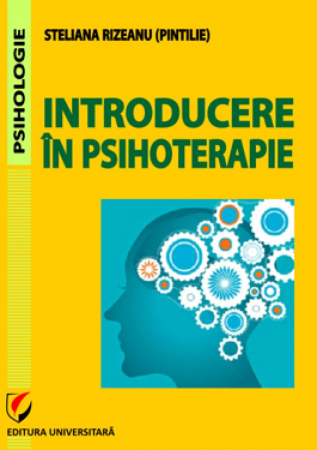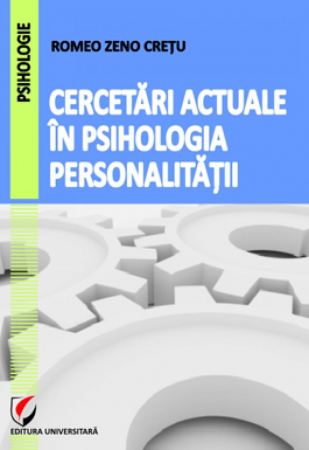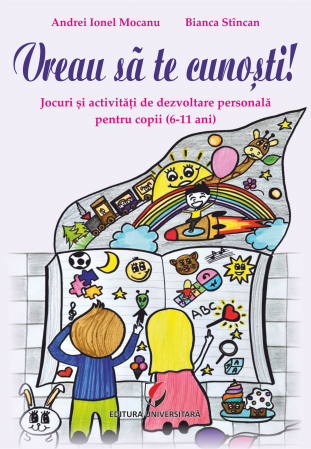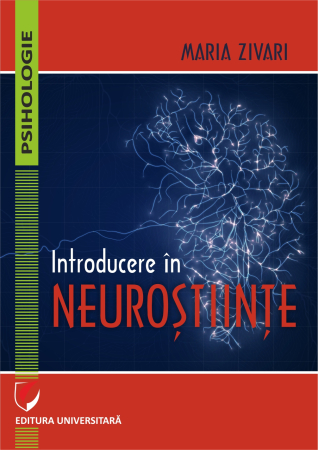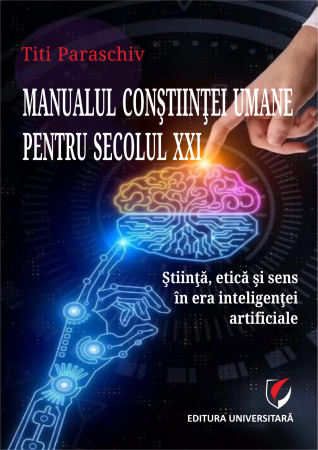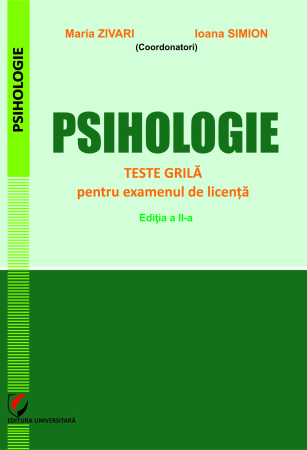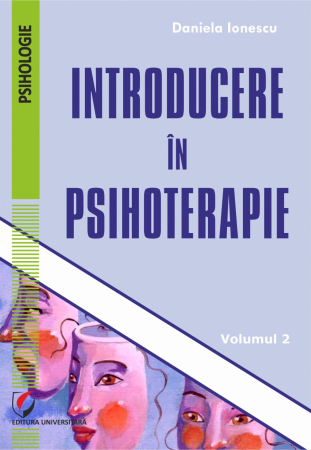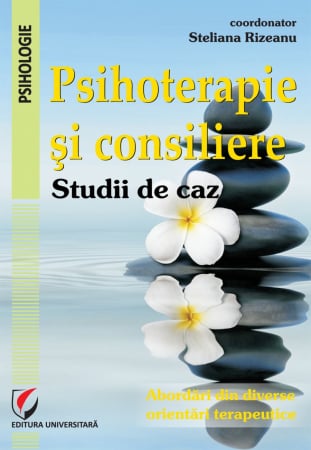Manuscript proposals: [email protected] / 0745 204 115 //// Tracking orders Individuals / Sales: 0745 200 357 / Orders Legal entities: 0721 722 783
6359.png) The psychology of heightened states of consciousness. Fundamental concepts regarding consciousness - Aliodor Manolea
The psychology of heightened states of consciousness. Fundamental concepts regarding consciousness - Aliodor Manolea
6359.png)
Publisher: Editura Universitară
Author: Aliodor Manolea
Edition: I
Pages: 156
Publisher year: 2022
ISBN: 978-606-28-1440-3
DOI: https://doi.org/10.5682/9786062814403
Product Code:
9786062814403
Do you need help?
0745 200 357
- Description
- Download (1)
- Authors
- More details
- Content
- Reviews (0)
Under the generic "Psychology of heightened states of consciousness" volume "Fundamental concepts regarding consciousness" is a work edited in the form of brief presentation slides as a component part of the course entitled "Investigation and clinical intervention using heightened states of consciousness" held in within the Master's degree in clinical psychology of the Faculty of Psychology and Educational Sciences of the Hyperion University in Bucharest.
Until the date of publication, the content was checked for similarity using specialized programs.
The bibliography is selective and in the appendices there are materials with a documentary purpose.
Until the date of publication, the content was checked for similarity using specialized programs.
The bibliography is selective and in the appendices there are materials with a documentary purpose.
-
The psychology of heightened states of consciousness. Fundamental concepts regarding consciousness
Download
ALIODOR MANOLEA
Doctor in Psychology / University of Bucharest
Doctor in Military Sciences / National University of Defense Carol I, Bucharest
Doctor of Science / The Open International University for Complementary Medicines, Colombo, Sri Lanka
Doctoral University Lecturer / Hyperion University Bucharest, Faculty of Psychology and Educational Sciences
Associate member / Romanian Academy of Scientists
Member / College of Psychologists from Romania
Doctor in Psychology / University of Bucharest
Doctor in Military Sciences / National University of Defense Carol I, Bucharest
Doctor of Science / The Open International University for Complementary Medicines, Colombo, Sri Lanka
Doctoral University Lecturer / Hyperion University Bucharest, Faculty of Psychology and Educational Sciences
Associate member / Romanian Academy of Scientists
Member / College of Psychologists from Romania
Questions like "What is consciousness?" "Is there consciousness without material support?" they were present in people's minds since the beginning of their existence and they were transposed into stories, traditions, myths and later into philosophy. In the last century, the respective subjects became concerns of psychology, and more recently, of neuroscience, this new field of science that tries to decipher the mystery of consciousness. And in recent years, Artificial Intelligence has entered this carousel of human knowledge.
The author, without trying to offer his own answer to this issue of consciousness, mentions the multitude of opinions expressed by philosophers, psychologists, neuropsychologists or by pioneers of Artificial Intelligence. In this sense, we are offered multidimensional information, starting from etymology, passing through philosophical and psychological concepts and ending with arguments specific to the neurosciences.
If we refer to the etymology, consciousness appears to us as rather consciousness, a concept that refers to that property of evolved biological systems to adapt, to have an optimal response to environmental challenges, stimuli, whatever it may be: chemical , biological, meaning the one that refers to survival, but also the social one that refers to existence, being. We realize that we exist.
Consciousness, in the sense mentioned in the work, also has a dimension that transcends the individual, having metaphysical connotations, thus going beyond the boundaries of concrete reality.
Can consciousness exist without material, biological support? Neuroscience, using the technological evolution that allows the evaluation and measurement of brain activity at a level that can highlight the activity of even a single neuron, inclines to consider consciousness as an epiphenomenon, emergent of neural activity, mediated by the so-called neural correlates of consciousness. Consciousness would be a result of the dynamics of neural networks without which it would not exist. Therefore, it has a material, biological substrate and cannot manifest itself without it. It's a reductionist point of view.
Psychology, for its part, has tried since its modern beginnings (James, Freud, Jung) to offer a conceptual framework to elucidate the "mystery of consciousness". Countless concepts have been created or taken from other fields such as philosophy or religion to provide a fully accepted answer to the mentioned questions. No single disciplinary perspective and no single concept can tell the whole story about human nature and social dynamics. The research methods of psychology are also reductive and do not focus on the problem of consciousness, a fact recognized by most researchers in the field of psychology. As a result of this fact, the psychological perspective has an explanatory gap because the examination of behavioral mechanisms proves useful for a large number of problems, but not for the problem of consciousness.
Lately, theories and models about consciousness have aggregated knowledge from fields such as mathematics or cybernetics, in the hope of providing a theoretical framework verifiable through experiment, for the difficult problem of consciousness. However, the concept still escapes understanding, theoretical formalization, still remaining a mystery, which may be explained...
Univ. Prof. Dr. Irina Holdevici
The author, without trying to offer his own answer to this issue of consciousness, mentions the multitude of opinions expressed by philosophers, psychologists, neuropsychologists or by pioneers of Artificial Intelligence. In this sense, we are offered multidimensional information, starting from etymology, passing through philosophical and psychological concepts and ending with arguments specific to the neurosciences.
If we refer to the etymology, consciousness appears to us as rather consciousness, a concept that refers to that property of evolved biological systems to adapt, to have an optimal response to environmental challenges, stimuli, whatever it may be: chemical , biological, meaning the one that refers to survival, but also the social one that refers to existence, being. We realize that we exist.
Consciousness, in the sense mentioned in the work, also has a dimension that transcends the individual, having metaphysical connotations, thus going beyond the boundaries of concrete reality.
Can consciousness exist without material, biological support? Neuroscience, using the technological evolution that allows the evaluation and measurement of brain activity at a level that can highlight the activity of even a single neuron, inclines to consider consciousness as an epiphenomenon, emergent of neural activity, mediated by the so-called neural correlates of consciousness. Consciousness would be a result of the dynamics of neural networks without which it would not exist. Therefore, it has a material, biological substrate and cannot manifest itself without it. It's a reductionist point of view.
Psychology, for its part, has tried since its modern beginnings (James, Freud, Jung) to offer a conceptual framework to elucidate the "mystery of consciousness". Countless concepts have been created or taken from other fields such as philosophy or religion to provide a fully accepted answer to the mentioned questions. No single disciplinary perspective and no single concept can tell the whole story about human nature and social dynamics. The research methods of psychology are also reductive and do not focus on the problem of consciousness, a fact recognized by most researchers in the field of psychology. As a result of this fact, the psychological perspective has an explanatory gap because the examination of behavioral mechanisms proves useful for a large number of problems, but not for the problem of consciousness.
Lately, theories and models about consciousness have aggregated knowledge from fields such as mathematics or cybernetics, in the hope of providing a theoretical framework verifiable through experiment, for the difficult problem of consciousness. However, the concept still escapes understanding, theoretical formalization, still remaining a mystery, which may be explained...
Univ. Prof. Dr. Irina Holdevici
Foreword / 5
Author's note / 7
Prolegomena / 11
Fundamental concepts regarding consciousness / 14
The illusion of consciousness / 20
Fundamental concepts regarding consciousness / 30
The difficult problem of consciousness / 39
Neural correlates of consciousness / 47
Integrated Information Theory (IIT) / 49
Conscious, subconscious, unconscious. Consciousness. Unconscious feelings and unconsciousness / 61
Sleep. Stages, Dream, Hypnagogic State and Hypnopompic State / 80
Appendix 1. Consciousness / 101
Appendix 2. A conceptual framework of consciousness / 125
Bibliography / 149
Author's note / 7
Prolegomena / 11
Fundamental concepts regarding consciousness / 14
The illusion of consciousness / 20
Fundamental concepts regarding consciousness / 30
The difficult problem of consciousness / 39
Neural correlates of consciousness / 47
Integrated Information Theory (IIT) / 49
Conscious, subconscious, unconscious. Consciousness. Unconscious feelings and unconsciousness / 61
Sleep. Stages, Dream, Hypnagogic State and Hypnopompic State / 80
Appendix 1. Consciousness / 101
Appendix 2. A conceptual framework of consciousness / 125
Bibliography / 149
If you want to express your opinion about this product you can add a review.
write a review

![The psychology of heightened states of consciousness. Fundamental concepts regarding consciousness - Aliodor Manolea [1] The psychology of heightened states of consciousness. Fundamental concepts regarding consciousness - Aliodor Manolea [1]](https://gomagcdn.ro/domains/editurauniversitara.ro/files/product/large/psihologia-starilor-amplificate-ale-constiintei-concepte-fundamentale-privind-constiinta-361381.jpg)
